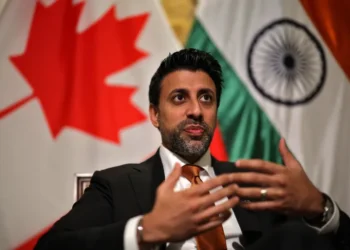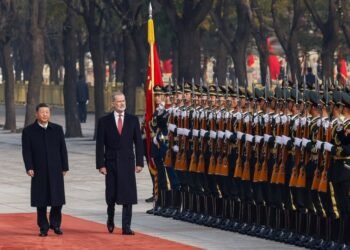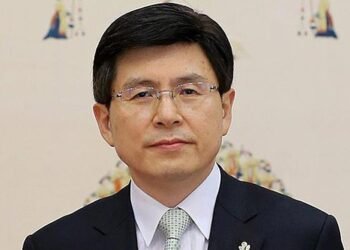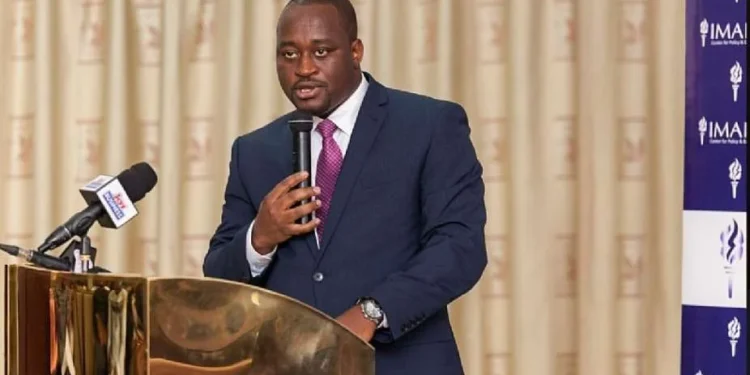In the ever-turbulent Middle East, accusations and counteraccusations are often part of the political theater.
Israel’s Defense Minister, Israel Katz, found himself caught in the crossfire of such claims when Iran’s Supreme Leader, Ayatollah Ali Khamenei, accused Israel and the United States of orchestrating a plot to oust Syrian President Bashar al-Assad.
Katz, was quick to dismiss these claims, turning the blame squarely back on Iran itself.
He asserted that Tehran has itself to blame for the fall of its ally.
Katz, on a tour of the Jordanian border with military commanders, accused Iran of trying to establish an “eastern front” against Israel in the neighbouring kingdom, and vowed to prevent it.
Khamenei said that Assad’s ousting this week by Islamist-led rebels “is the product of a joint US-Israeli plot”, also blaming another unnamed “neighbouring state of Syria.”
Katz, according to a statement from his office, said that Khamenei “should blame himself” and stop financing armed groups “in Syria, Lebanon and Gaza to build the octopus arms he leads in an attempt to defeat the State of Israel.”
“I came here today to ensure that Iran will not succeed in building the octopus arm that it is planning and working to establish here, in order to create an eastern front against the State of Israel.”
Israel Katz
By redirecting blame towards Israel and the West, Iran distracts from its own role in Syria’s complex civil war. After all, Iran has been deeply invested in al-Assad’s survival.
Katz suggested Iran was behind “attempts to smuggle weapons” into the Israeli-occupied West Bank, which borders Jordan, as well as to “fund terrorism and promote” it.
The Defence Minister said that he had instructed the army “to increase offensive operations against any terrorist activity” in the West Bank, and to “accelerate the construction of the fence on the Israel-Jordan border.”
Meanwhile, U.S. Defense Secretary, Lloyd Austin told Katz in a call that it was important for the United States and Israel to be in close consultation over events unfolding in Syria.
Austin told Katz that Washington was monitoring developments in Syria and that it backed a peaceful, inclusive political transition, according to the Pentagon.
He added that the U.S. would continue its mission to prevent the Islamic State militant group from re-establishing a safe haven in Syria.
Israel Focused On Eliminating Threats to Its Security
Following the collapse of Assad’s regime, the Israeli military said that its jets conducted hundreds of strikes in Syria and destroyed the bulk of Syria’s strategic weapons stockpiles.
Commenting on this, David Des Roches, a Professor at the National Defense University, opined that Israel has been targeting chemical weapons stockpiles in Syria to eliminate any threats against its security.
“In 2013, the French estimated that there were about 1,000 tonnes of chemical weapons in Syria.
“There was supposed to be a UN-supervised process that led to the destruction of all chemical weapons and the Syrians declared that complete in 2014. But they clearly conducted a chemical attack against civilians in 2017 and another one in 2018.”
David Des Roches
Des Roches said that at the moment, there’s nothing in open sources to indicate how many chemical weapons Syria has.
He added that Israel has also been targeting the Syrian Air Force, “which no longer exists,” and the country’s missile launch facilities.
“[This is so that] even if you get a bad actor, like [ISIL or ISIS] coming out of the central desert, they don’t have the ability to deliver chemical weapons.
“And also there’s uncertainty … [The Israelis] don’t know what the government’s going to be like in Syria and they don’t want to take a chance.”
David Des Roches
READ ALSO: Appiah-Kubi Expresses Shock After Losing Seat in Akim North























